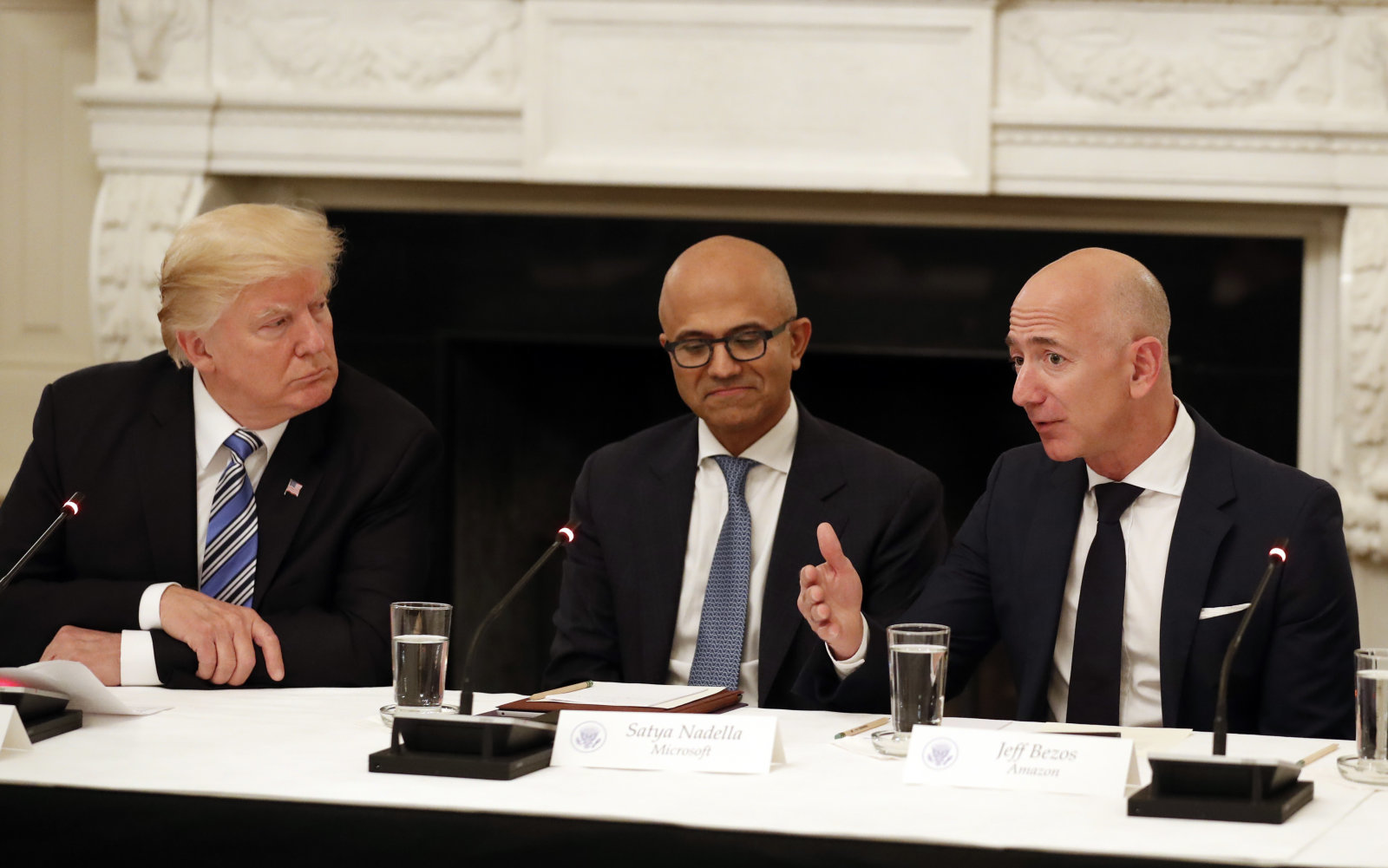In brief: Amazon thinks President Donald Trump was uniquely responsible for rigging the evaluation process that ruled it out of a multi-billion dollar cloud contract with the Pentagon, just as it was well-positioned to win. The tech giant has managed to block the federal government's decision to hire Microsoft, pending a close review that is unlikely to lead to a different conclusion.
Back in November 2019, Microsoft was awarded an intensely sought-after contract to supply the Defense Department's Joint Enterprise Defense Infrastructure (JEDI) project with cloud services. Several tech giants had competed for the privilege, but none of them as fiercely as Amazon, who didn't stop fighting and challenged the Pentagon's decision in federal court.
This week, a judge ordered a temporary block on Microsoft's right to work on the $10 billion contract just one month after Amazon filed a motion requesting a closer examination of the motives behind the decision. The notice for the injunction wasn't made public, and there's little indication as to the exact reasons behind it, reports CNBC.
Amazon thought it was the frontrunner in the race to securing the JEDI contract and was understandably upset about losing a lot of business to one of its biggest competitors in the cloud space. The tech giant challenged the thinking behind Pentagon's choice, claiming that President Trump had "launched repeated public and behind-the-scenes attacks to steer the JEDI Contract away from AWS to harm his perceived political enemy --- Jeffrey P. Bezos."

That is why earlier this week, unsealed court documents showed that Amazon wants to question President Trump, as well as Defense Department's Chief Information Officer Dana Deasy, Defense Secretary Mark Esper, and former Defense Secretary James Mattis. In Amazon's eyes, the whole evaluation process that ruled it out for the contract was full of "deficiencies, errors, and unmistakable bias."
From Trump's perspective, all he did was look into the JEDI contract following complaints that awarding it to Amazon would constitute a case of favoritism.
Microsoft's Vice President of Communications Frank Shaw issued a statement expressing the company's disappointment.
"While we are disappointed with the additional delay, we believe that we will ultimately be able to move forward with the work to make sure those who serve our country can access the new technology they urgently require. We have confidence in the Department of Defense, and we believe the facts will show they ran a detailed, thorough, and fair process in determining the needs of the warfighter were best met by Microsoft."
The new cloud computing network was supposed to become active today, so Amazon has been advised to prepare for the possibility that it may lose the case. If it turns out that the injunction was issued wrongfully, the company may have to have $42 million at the ready to cover "costs and damages." Microsoft and Amazon are both expected to respond to the filing by February 27.
